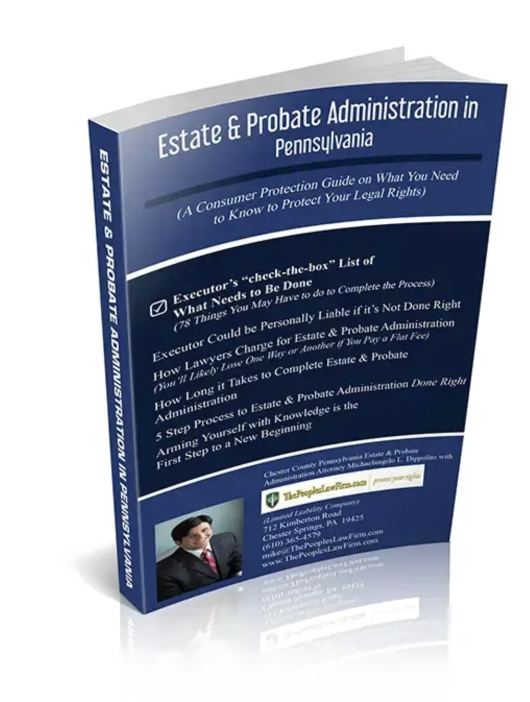Being named as the personal representative of a loved one’s estate is an honor, demonstrating that a loved one trusts you to carry out their wishes after they pass; however, facing the legal duty of estate administration and probate may feel overwhelming when the time comes.
Fortunately, you don’t need to move forward on this complex process alone. Instead, call the Pennsylvania probate lawyers at ThePeoplesLawFirm.com for experienced legal counsel throughout probate and estate administration in East Whiteland.
Why Choose the East Whiteland Estate Attorney at ThePeoplesLawFirm.com?
Probate is one of the few legal processes that is entrusted to an individual who often has little to no experience in the legal world. By hiring an East Whiteland estate administration and probate lawyer from ThePeoplesLawFirm.com, you’ll enjoy the following advantages:
- A lead attorney with over 26 years of experience at your side through every step of the process
- A personalized strategy for the most efficient probate process based on the unique requirements of your loved one’s estate
- A knowledgeable, neutral voice to settle any conflicts that arise between beneficiaries, with careful adherence to Pennsylvania’s probate laws
Attorney Michaelangelo L. Dippolito offers a free phone consultation to prospective clients, enabling you to learn more about the benefits of legal counsel during the probate process in East Whiteland and the surrounding area.
Who Manages an Estate During Probate?
When an individual creates a will or comprehensive estate plan, they name a personal representative or executor to carry out their wishes after they pass away. This person also serves as the estate administrator during the probate process.
If a person dies without leaving a will, the probate court appoints an estate administrator, typically after a close family member, such as a spouse, parent, or adult child, volunteers for this duty.
What to Expect From the Probate and Estate Administration Process In East Whiteland, PA
Probate is a legal process meant to facilitate an orderly distribution of a deceased person’s assets to those they name as heirs or, according to the state’s intestacy laws of inheritance when an individual passes away without a will.
The Pennsylvania probate process typically follows the general timeline below:
- Soon after the funeral and burial, the estate administrator gathers relevant documents, including certified copies of the death certificate, the will, any living trust documents, and life insurance policies
- They file the will and death certificate with the Will Register of the decedent’s county
- They also file a petition to the probate court in the county
- The probate court opens a probate case and grants authority to the estate administrator
- The estate administrator notifies the beneficiaries, creditors, IRS, and the public of the open probate period
- An inventory of the estate holdings occurs, and all debts and tax burdens must be resolved, sometimes through the sale of estate property or as directed in the will
Finally, the estate administrator oversees the distribution of the remaining assets according to the decedent’s expressed wishes or the state’s inheritance laws, depending on whether or not there is a will.
Contact ThePeoplesLawFirm.com’s Estate Administration and Probate Attorneys in East Whiteland
As the estate administrator for a deceased loved one, you have a fiduciary responsibility to act in the best interests of the estate. An oversight or error during the probate process can leave you paying out of pocket.
Instead of taking a chance of complications or conflicts arising during estate administration, contact an East Whiteland estate administration and probate attorney from ThePeoplesLawFirm.com for legal counsel for all aspects of the probate process.





